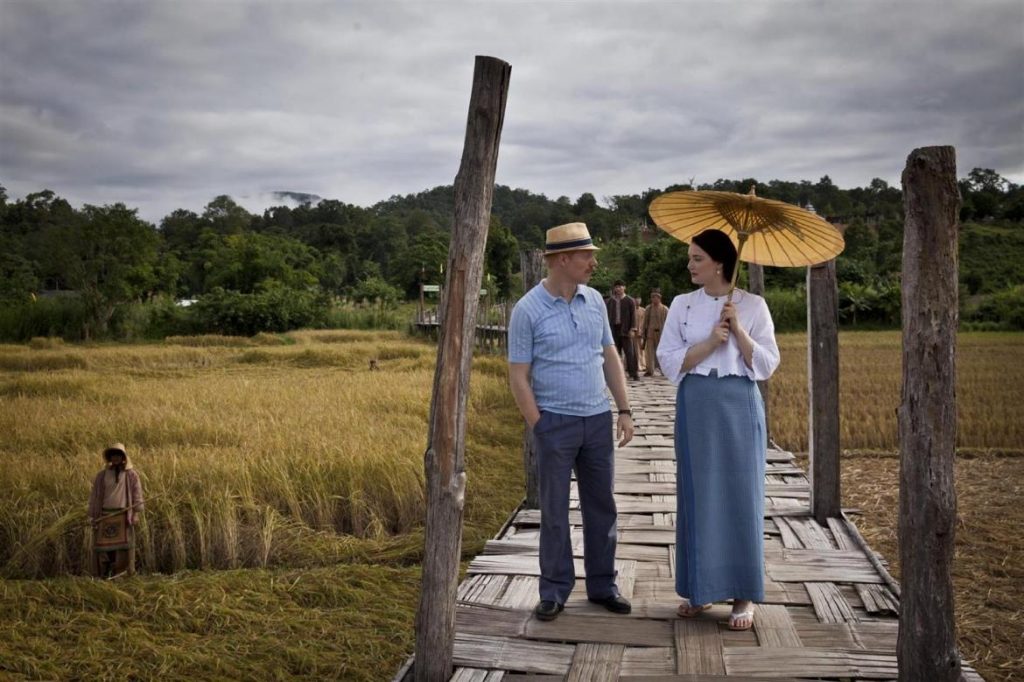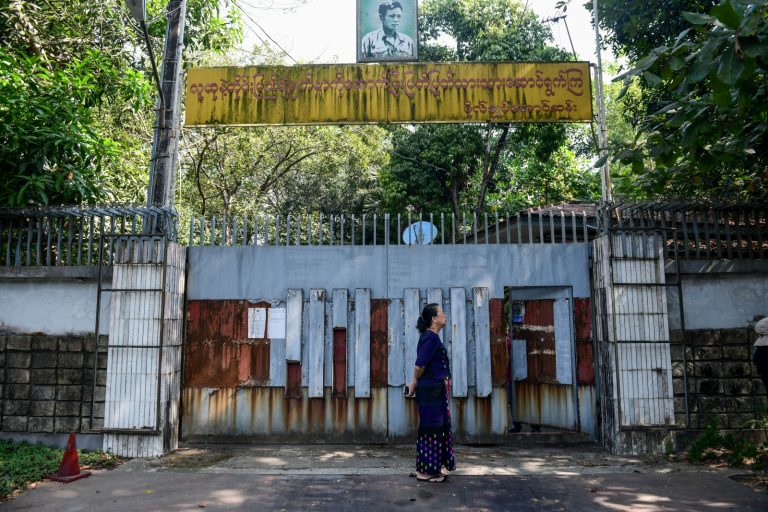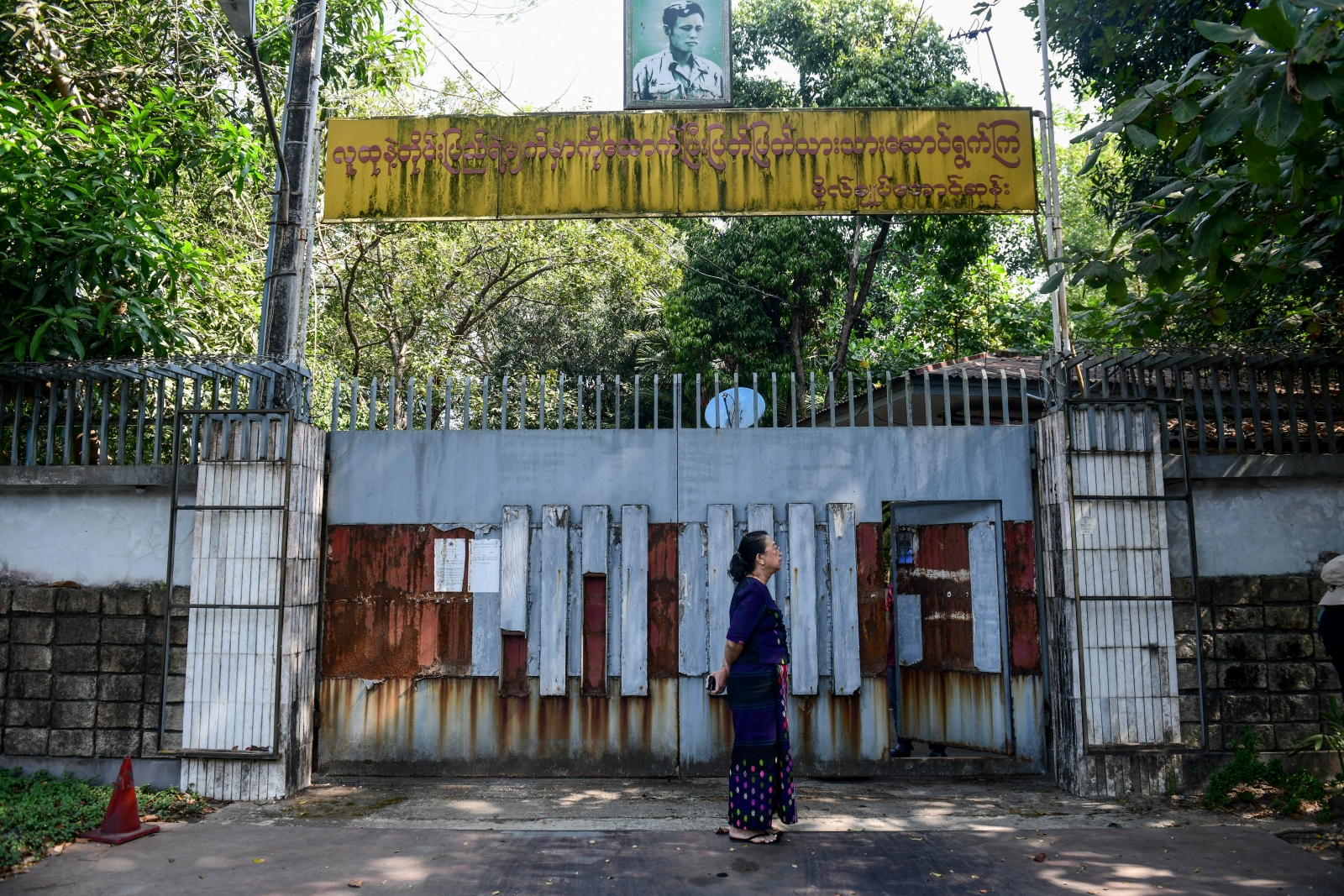By SEAN GLEESON | FRONTIER
YANGON — Members of Myanmar’s film community say they are disappointed but not surprised by an official decision to block a feature screening at a human rights-themed film festival in Yangon.
Questions have also been raised as to whether the body responsible for overseeing Myanmar’s film industry acted independently or at the behest of the government. The Ministry of Information has denied the allegation, while also claiming that the film was “afoul” of the new government’s policies.
More than 200 people had packed into the main theatre at Yangon’s Naypyitaw Cinema on Tuesday evening for a screening of ‘Twilight Over Burma’. The film is based on the biography of Austrian woman Inge Sargent and recounts her marriage to Sao Kya Seng, who was Shan prince of Hsipaw until the 1962 military coup led by Ne Win.
Shortly before the film was to commence, organisers of the Human Rights Human Dignity Film Festival took to the stage and told a stunned crowd that Myanmar’s Film Classification Board had denied permission to screen the feature, apparently because it cast a negative light on the nation’s military.
Support more independent journalism like this. Sign up to be a Frontier member.
“We have banned it for the sake of national reconciliation and for the time being, we are in process of peace building,” U Thein Naing, the secretary of the classification board, told Frontier on Wednesday.
Sao Kya Seng was one of a number of Shan leaders to enjoy semi-autonomous rule over his subjects as a result of the 1947 Panglong Conference, the attempt by independence hero Aung San to craft a political settlement between several ethnic groups to form a unified Myanmar.
After the 1962 coup, he was one of a number of ethnic political leaders arrested by the military administration. In her memoir, Sargent wrote that he was detained at a military camp near Taunggyi, the Shan State capital, where he is suspected to have been later killed.
Sargent returned to Austria with her two daughters after spending the following two years in an ultimately futile quest to learn the fate of her husband from authorities.
Asked for comment on Wednesday, Information Minister U Pe Myint referred questions to U Tint Swe, the ministry’s permanent secretary.
“The censor board blocked that movie because it’s afoul of the new government’s political policies and economic policies,” Tint Swe told Frontier by phone. “As the minister was requested to review the decision, the minister instructed us to review it a second time. The censor board decided it was still blocked.”
Tint Swe denied the minister had intervened in the Film Classification Board’s decision to ban the film.
“We have not intervened in the ministry, as the censor board is formed and acts independently according to the motion picture law. The censor board said that some scenes in the movie are not proper for the sake of national reconciliation and that’s why they made this decision.”
Asked if the ban had been sought from above, Thein Naing told Frontier that “all decisions here were made by board members”, declining to answer any further questions.
However U Ye Htut, who was Pe Myint’s predecessor during the final two years of the previous government’s term, said the final decision on any film ban rested with the Information Minister.
“According to ministry procedure, the censor board cannot ban a film without the minister’s approval,” he said in an email to Frontier.
Phone Maw, secretary of the Myanmar Motion Picture Organisation and a member of the Film Classification Board, declined requests for comment on Wednesday, along with three other members of the MMPO.
‘Not new to us’
State Counsellor Daw Aung San Suu Kyi, the de facto leader of the current government and the daughter of Aung San, has served as one of the patrons of the Human Rights Human Dignity Film Festival since it was launched in 2012.
“National reconciliation” has been an oft-repeated plank of the new government’s platform as it attempts to draw a close to Myanmar’s decades-long history of ethnic insurgency.
Suu Kyi is soon to head a so-called “21st Century Panglong Conference with the aim of including more non-state armed groups in the national ceasefire agreement signed last year.
In March 2015, as the National League for Democracy was gearing up to contest the country’s national elections, Suu Kyi publicly apologised for the staging of a play in Pyay, Bago Region, which graphically depicted past atrocities committed by Myanmar’s military.
According to The Irrawaddy, Suu Kyi attended the event and upbraided staffers from the NLD’s Pyay office after the performance, telling the thousands who had gathered for the performance afterwards that “digging up bad experiences of the past” had the potential to obstruct the party’s goal of national reconciliation.
Ma Mon Mon Myat, one of the organisers of this week’s film festival, said she was not surprised that ‘Twilight Over Burma’ had been blocked from screening.
“It is not new to us, especially with the media institutions here,” she told Frontier on Wednesday. “We have experienced this kind of censorship very often.”
Mon Mon Myat added that all films shown at the festival had to be sent to the Film Classification Board in advance for prior approval. She revealed that the organisers had known a day in advance that permission to screen the film had been withheld in order to make a statement about the current state of Myanmar’s censorship regime.
“We wanted to show the reality of this country,” she said.
‘A matter of free expression’
Myanmar’s military-era film censorship body was abolished in 2012 as the quasi-civilian government of former President U Thein Sein relaxed media restrictions across the board.
It was reconstituted at the end of 2014 as the Film Classification Board, with government official U Win Kyi citing a deterioration in the quality of Myanmar films in the intervening years.
“We don’t mean to restrict directors, actors or production companies. Our focus is on providing quality movies to the public,” he said at the time, in comments reported by the Myanmar Times.
One cinemagoer at Tuesday night’s aborted screening told Frontier that the decision to ban ‘Twilight Over Burma’ from screening was an unjustified attack on artistic freedom.
“I am disappointed as everyone else who made the time to go see the film last night,” she said. “The irony is a film can’t even be screened at Human Rights Film Festival [because of the censorship board].”
Along with films considered at risk of undermining national harmony, taboo sexual subjects have been vigorously policed by censorship authorities. Interracial relationships such as the one depicted in ‘Twilight Over Burma’ have historically been a regular target of the censor’s pen.
One former employee of the Myanmar Times told Frontier that marriage notices between Myanmar citizens and foreigners were routinely excised by the Press Scrutiny Board under the previous military regime until the abolition of pre-publication print censorship in 2012.
Lamin Oo, a producer and founding member of the Tagu Films collective, was also part of the production team for a documentary submitted to this year’s Human Rights Human Dignity Film Festival.
While he was permitted to screen ‘A Good Woman’ at the festival, he told Frontier that the Film Classification Board offered a “suggestion” to make a change in a scene depicting a couple living together out of wedlock.
The production team was asked to change English-language subtitles where the referred to “living together”, on the grounds that reference to cohabitation before marriage was “against Myanmar culture”.
“[It] was kind of weird to us because it’s not that much of a change,” he said. “They didn’t ask us to change anything except the translation of the subtitles.”
Asked about Tuesday’s ban, Lamin Oo said he doubted the film was as controversial as authorities suggested.
“I think the audience can decide when they watch the film. It’s a matter of free expression and… [this decision] seems to go against the changes we have been seeing. But it’s not unexpected.”
Additional reporting by Mratt Kyaw Thu in Yangon and Nyan Hlaing Lynn in Nay Pyi Taw. Title photo: A still from the film ‘Twilight Over Burma’, which was blocked from a public screening in Yangon on Tuesday evening. (IMDB)







